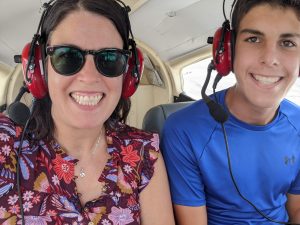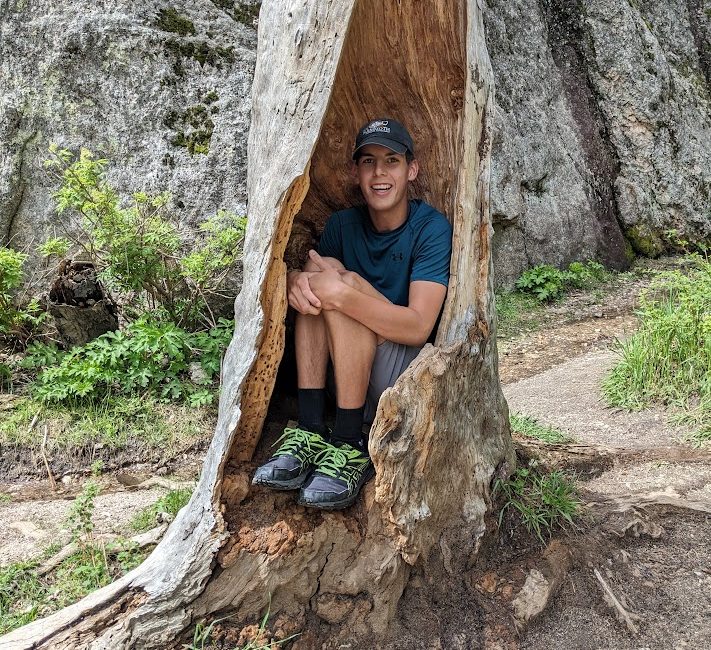Parents will universally understand what I am about to say. When we have our first child, the entire process from the initial doctor’s visit to their first birthday feels— if we’re being completely honest here — equal parts wonderous and nerve-wracking. By the time they reach birthday #2 in all its messy, glorious celebration, many of us babymakers are on a bliss high. That’s when we think cooly to ourselves, “We should replicate our success.” …Only to discover that kid #2 has a completely different instruction manual. They share features with their sibling, but their personality, preferences, and motivations are exclusive.
Each child calls for a unique parenting strategy

Hard Rock Cafe Puerto Rico
Raising our two teenagers is the most joyful, intense experience Steve and I could ever share. We celebrate the unique contributions each one brings to this family. Adrienne, our vibrant, artistic little extrovert with a natural inclination to share her art and ideas and to make connections with the best people. Addison, the strapping young man who loves every kind of sport and science, stays quiet for long periods but can talk in depth about what he learns by being insatiably curious.
Here’s what throws me for a loop: having first guided an extrovert through adolescence, I pivot to help Addison through the same stage. I discover the two processes are nothing alike. It’s a lot quieter and less busy. He has friends but prefers to engage with them one-on-one, enjoys team sports but not big parties, and says yes to short invites but no to overnight things. His forte is to set and crush individualistic goals— fitness, Eagle Scout, A+ grades, and athletic skills.
Commence worrying in 3…2…1

Eagle Scout Project: 5 Little Free Libraries
Nevertheless, I couldn’t yet recognize him as introverted because it was still an emerging feature of his personality. Perhaps the more teens grow independent from us (as they should), the more their adult self is revealed. We always have homeschooled; I wondered if perhaps my student-led education style steered him into this quiet phase. Would introversion lead to a less successful, contented life? I attempted to introduce him to even more opportunities completely out of his comfort zone. Though my intentions were loving, some of my prodding actually worked against his best interests.
At the summit of my apprehension, I had lunch with a dear friend who is also an introvert. Like we moms are inclined to do, I bragged about my kids and because I am safe with Haley, I also shared my concerns. Addison’s latest thing is to retreat to his room with the door shut. This goes against the grain of our connected family lifestyle. My own family of origin felt so disconnected. When we weren’t at church, each member did their own thing and it was rather lonely. Was this what Addison preferred now as a teen?
So I assigned meaning to his closed door and worried about him. You cannot actually make a teen do anything they don’t want to do, especially when they are 6’1″ and strong-willed. Notwithstanding that, we badgered him to leave the door open. At our lunch, Haley gently suggested that his room is simply a quiet space for him to recharge. She behaved similarly at that same age. Perhaps I should reinterpret his closed door and reconsider any cause for alarm.
The introvert test

Building cairns in the Black Hills
Haley recommended Quiet by Susan Cain. Cain writes about common societal misperceptions of introverts and even how our culture rewards extroverts. There are even resources to teach us all how to “tap into our inner extrovert.” This book is illuminating to me as an ambivert mother of an introverted teen boy. Her work depicts the power of introverts whose contributions came not from morphing into an extrovert, but from being true to themselves. Eleanor Roosevelt, Bill Gates, Warren Buffet, J.K. Rowling, just to name a few. Cain offers a free “Quiet Quiz” which Steve, Addison, and I took together. Addison lit up as we discussed each answer. We learned volumes about one another in the conversation this test sparked.
Following this sweet time with him, we set some parameters around time alone in his room.
- Would he please continue to eat meals and snacks with us at the table?
- Watching shows or movies is for the living room.
- Computer time should remain limited for mental health, the classic screen struggle.
- Our family does have a preset to get outside and exercise every day for all the benefits it provides, so we didn’t need to reinforce that one.
- Most nights, dinner is followed by a family activity, another preset we didn’t have to debate.
Presently, my son’s door is shut. He is in there typing his Eagle Scout application and video chatting with a friend. He is, as Haley calls it, in recharge mode. If I were to knock and ask him to run errands with me, he will generally say yes. I know because I test it out periodically to reassure myself— mom hack.
Closed door, open hearts

Flying over Kansas City
Consequently, I can lay aside all anxiety about Addison. That’s not to say Steve and I don’t still prod him a bit whenever prudent. Recently he went to a water park with friends and stayed around later for pizza and chess. It’s no big deal to us that he also turned down a youth retreat invite.
Proverbs 22 encourages parents to raise kids in the way they should; when they’re old, they will not depart from it. Our joyful role for our kids— be they introverts, extroverts, or ambiverts — is to assist them in discovering that way. How can they best thrive as the person God created them to be? In turn, God empowers us to craft homes where their growth is cultivated and celebrated. We have to diligently set this as a priority in every season of our parenting journey. I encourage us all to remain doggedly focused, especially during the “under-our-roof years.”
Raising teens is a delicate process, for wholehearted and not faint-of-heart. Cheers, and a whole lot of grace, to us all!








Recent Comments